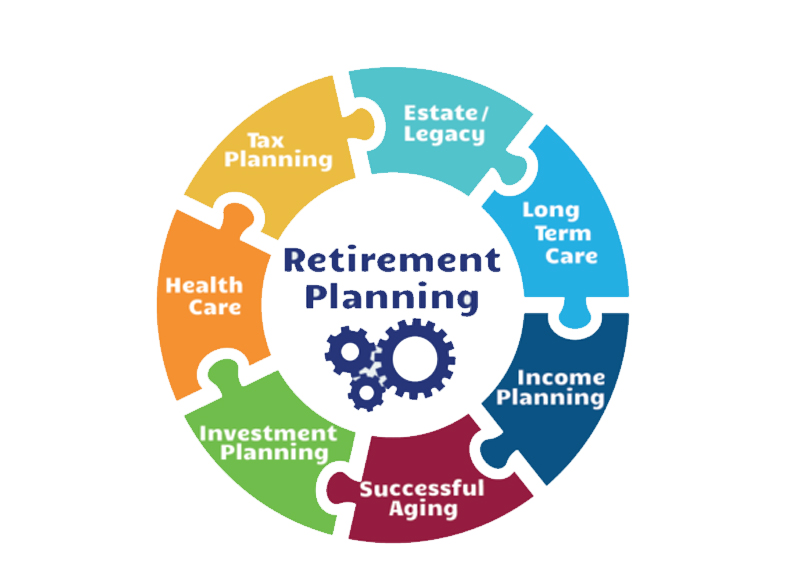While insurance is about protecting what you have, retirement and estate planning is about protecting what you may have in the future. Insuring what you have means finding the best way to protect it.
Retirement planning, on the other hand, means finding the best way to protect the life that you’d like to be living after you stop earning income from employment. Estate planning involves protecting what you have even after your death.

Your Personalized Investment Manager
Both types of planning aim to address some of the following questions, even if you really can’t answer them:
- What will my life be like when I retire?
- Will I have a spouse or partner?
- Will I have dependents?
- Will I have a home?
- Will I have a mortgage?
- Will I be disabled?
- Where will I live?
- What will I do?
- What would I like to do?
Planning, especially for retirement, should start as early as possible, allowing the most time for savings to occur and accrue. Ironically, that’s when it is hardest to try to imagine answers to these questions. Understanding the practical means to planning and saving for retirement can help you get started. If your plans are flexible, they can be adapted to the unexpected as it happens, which it inevitably will.
Retirement planning involves the same steps as any other personal planning: assess where you’d like to be and then determine how to get there from where you are. More formally, the first step is to define your goals, even if they are no more specific than “I want to be able to afford a nice life after I stop getting a pay cheque.” But what is a “nice life,” and how will you pay for it?
It may seem impossible or futile to try to project your retirement needs so far from retirement given that there are so many uncertainties in life and retirement may be far away. But that shouldn’t keep you from saving. You can try to save as much as possible for now, with the idea that your plans will clarify as you get closer to your retirement, so whatever money you have saved will give you a head start.
While knowing the numbers clarifies the picture of your needs, you must reconcile that picture with the realities that you face now. How will you be able to afford to save what you need for retirement?
There are several savings plans structured to help you save; some offer tax advantages, some don’t. But first you need to make a commitment to save.
Saving means not spending a portion of your disposable income. It means delaying gratification or putting off until tomorrow what you could have today. That is often difficult, as you have many demands on your disposable income. You must weigh the benefit of fulfilling those demands with the cost of not saving for retirement, even though benefit in the present is much easier to credit than benefit in the future. Once you resolve to save, however, employer, government, and individual retirement plans are there to help you.
You may use your current expenses as a basis to project a more or less expensive lifestyle after retirement. You may anticipate expenses dropping with fewer household members and dependents, for example, after your children have grown. Or you may wish to spend more and live a more comfortable life, doing things you’ve always wanted to do. In any case, your current level of spending can be a starting point for your estimates.
